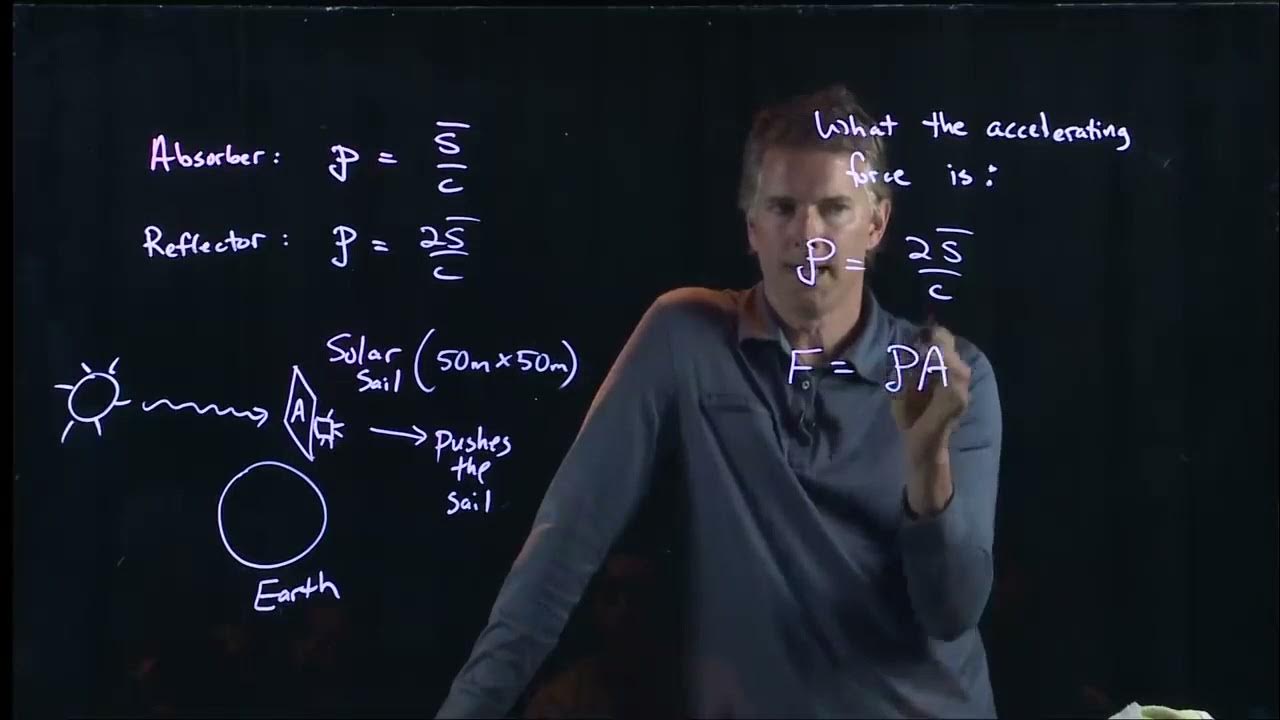🌞 Solar Geoengineering?! Are We Really Gonna Block the Sun? 🤯🌍
Summary
TLDRSolar geoengineering, or solar radiation management, refers to technologies aimed at cooling the Earth by reflecting sunlight back into space. While these methods, like injecting reflective particles into the atmosphere, could mitigate some climate change effects, they are not a replacement for reducing greenhouse gas emissions. Potential benefits include slowing global warming, reducing ice melt, and even improving agricultural productivity. However, risks like unpredictable climate impacts, governance challenges, and moral hazards are significant concerns. Further research, international cooperation, and open public discussions are essential for responsible development and deployment of solar geoengineering technologies.
Takeaways
- 😀 Solar geoengineering, also known as solar radiation management, involves technologies designed to cool the Earth by reflecting some sunlight back into space.
- 🌍 The concept aims to mimic the cooling effects of volcanic eruptions, which release reflective particles into the atmosphere and block sunlight.
- ⚖️ Solar geoengineering could potentially slow global warming and mitigate the effects of climate change but is not a substitute for reducing greenhouse gas emissions.
- ❄️ It may help reduce the melting of glaciers and ice sheets, potentially slowing down the rise in sea levels and buying time for adaptation to climate change.
- 🌾 Some studies suggest solar geoengineering could positively impact crop yields by reducing heat stress and altering precipitation patterns.
- 🚨 The technology raises significant concerns, particularly regarding unpredictable consequences on weather patterns, regional climates, and extreme events.
- 🌐 The lack of global governance frameworks poses risks, as the deployment of such technologies involves complex geopolitical questions.
- ⚖️ Ethical concerns also surround solar geoengineering, including the potential for moral hazard, where reliance on technology may reduce efforts to cut emissions.
- 🤝 International cooperation and transparent global discussions are vital to weigh the risks, benefits, and ethical issues surrounding solar geoengineering.
- 📚 Ongoing research and collaboration across countries are crucial to better understand the impacts and limitations of solar geoengineering and ensure responsible deployment.
Q & A
What is solar geoengineering and how does it aim to cool the Earth?
-Solar geoengineering, also known as solar radiation management, is a set of technologies designed to cool the Earth by reflecting a small amount of sunlight back into space. It can be achieved through methods such as injecting reflective particles into the stratosphere or enhancing cloud reflectivity.
What is the concept behind solar geoengineering based on?
-The concept of solar geoengineering is based on mimicking the cooling effect of volcanic eruptions, which release sulfate aerosols into the atmosphere and temporarily block sunlight.
Why is solar geoengineering not a substitute for reducing greenhouse gas emissions?
-Solar geoengineering is not a substitute for reducing greenhouse gas emissions because it does not address the root cause of climate change. It is seen as a complementary approach to mitigate some effects while transitioning to a low-carbon economy.
What are some potential benefits of solar geoengineering?
-Some potential benefits of solar geoengineering include slowing the rate of global warming, reducing pressures on ecosystems and human societies, mitigating the melting of glaciers and ice sheets, and potentially enhancing crop yields by reducing heat stress.
How could solar geoengineering impact the melting of glaciers and ice sheets?
-By reducing global temperatures, solar geoengineering could slow down the accelerated melting of glaciers and ice sheets, which contribute to rising sea levels and pose a threat to coastal communities.
What potential agricultural benefits could solar geoengineering provide?
-Solar geoengineering could help reduce heat stress on plants and alter precipitation patterns, which could potentially enhance agricultural productivity and contribute to global food security.
What are the risks and uncertainties associated with solar geoengineering?
-The primary risks include unintended and unpredictable consequences on regional weather patterns, precipitation, and extreme weather events due to the complex nature of the Earth's climate system. There are also concerns about lack of global governance and ethical frameworks.
Why is international cooperation necessary for solar geoengineering research and deployment?
-International cooperation is essential to ensure responsible research and deployment, to address ethical concerns, and to establish governance mechanisms that ensure the risks and benefits are fairly distributed globally.
What is the concern around moral hazard related to solar geoengineering?
-Moral hazard refers to the concern that the availability of solar geoengineering as a technological fix might discourage efforts to reduce greenhouse gas emissions. It could lead to over-reliance on geoengineering, masking the underlying problem without addressing its root causes.
What is the role of public engagement in the decision-making process for solar geoengineering?
-Public engagement is crucial to ensure societal values and concerns are integrated into decision-making processes. Open and transparent discussions involving the public, scientists, and policymakers are essential for weighing the potential benefits and risks of solar geoengineering.
Outlines

This section is available to paid users only. Please upgrade to access this part.
Upgrade NowMindmap

This section is available to paid users only. Please upgrade to access this part.
Upgrade NowKeywords

This section is available to paid users only. Please upgrade to access this part.
Upgrade NowHighlights

This section is available to paid users only. Please upgrade to access this part.
Upgrade NowTranscripts

This section is available to paid users only. Please upgrade to access this part.
Upgrade NowBrowse More Related Video
5.0 / 5 (0 votes)





